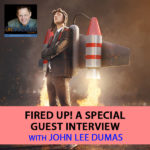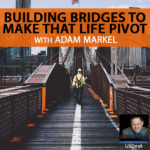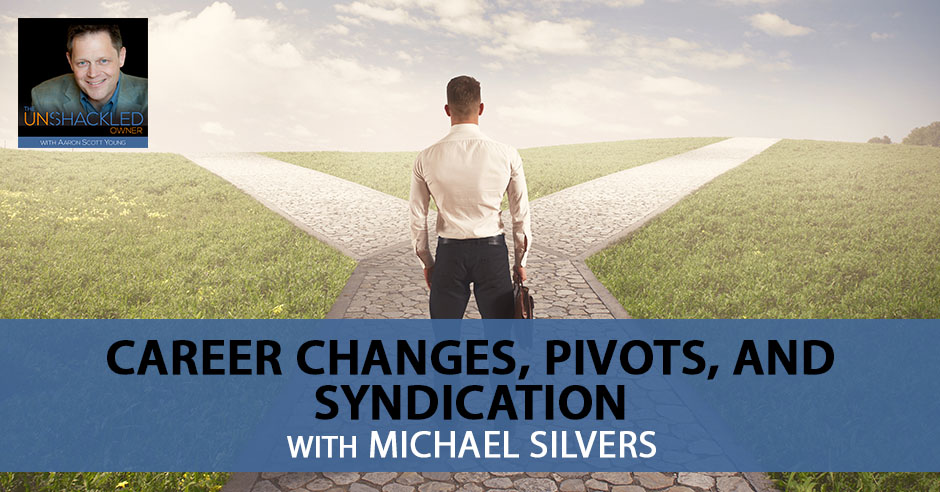
—
Listen To The Episode Here
Career Changes, Pivots, And Syndication with Michael Silvers
The thing I love about this show is I love hearing from you. I love seeing the comments. I love the emails I get and hearing about how these stories, these lessons we learned from people are making a difference. As you learn from their challenges, their life experiences and you’re able to apply those things in your life so that you start putting processes in place. You start making intentional decisions that are leading you down a path to more quickly achieve your goals. That’s what we’re all about here becoming not self-employed but actually owning a business and owning assets that are paying you. You’re sitting more as the chairman of the board and less as the president of the company. You become an owner and not just an operator. We’re going to have a great conversation with my guest. I’m looking forward to this. You’re hearing about another fascinating guy in my life, another person who’s doing interesting things. I think you’re going to love this story.
—
I have with me Michael Silvers. He’s the Managing Partner of The Vertical Group. I’ve known Michael for years. I met Michael because of one of his roles with a very large organization called Success Resources. He is someone they’ve engaged to solve a particular problem and manage a big vertical for them but that’s not his whole world. That’s not his whole life. That’s one thing that he’s been engaged to do because of his life’s experience. Michael, welcome to the Unshackled Owner podcast.
Aaron, thank you so much. It’s great to be on.
It’s nice to be with you. We’re going to go back in history first. Where were you born? Where were you as a little kid and what was your family situation like when you were a youngster?
I was born and raised in Los Angeles and some people say the big city life, it was a big city. It was right in the middle of the city but it was great. We had a house, my grandmother lived there. We had a duplex, so she had her own place. My dad was an attorney. My mom was a legal secretary and then went on to get her Master’s in clinical psychology. I had my brother with us. For me, it was great growing up. There was a little less on the entrepreneurial and a little bit more of becoming a doctor or a lawyer, getting a job and keeping that part of yourself moving forward. I loved it because there was a foundation and I felt I was grounded. Then I saw my family start to do things outside of that paradigm and I realized there was a bigger world.
Give me an example of what you mean by outside of that paradigm?
My dad started to do more attorney work. He moved from a firm. He was at a partner in a big firm and he went to become his own. He had a Beverly Hills office and he started to make connections and start to build his own practice, which doesn’t have the same guarantees about being in the partnership. At the same time, he realized that he also wanted a little bit more control of his clients and the people in his life.
You came from a great family, educated, with a good neighborhood. You had all that going for you. What did you love to do as you were growing up, as you were hitting your adolescence and your teenage years? What caught your fascination? Were you an athlete? Were you in the choir? Were you a paperboy?
For me, there was always that work ethic. I started being at fourteen. I worked for Leroy Knitwear, which was a big-name company back then and I did data processing. I realized at that point, I don’t want to ever have a job where I’m stuck in the middle of an office where I have no windows. There was a big realization there. I used to do a ton of sports. I loved to play football. Football was a sport I played all the time and got injured. I realized, “How long is my body going to take this?” There was that, “I don’t want to ever work in this environment where I’m held in and there’re no windows. I also don’t want to beat my body up so bad that I’m not going to be walking.” As you might remember it, there was a show called Adam-12. It was very much about the community, helping the community and how they could be of service is how they geared the show. At that point, I decided I wanted to be a police officer. I actually went to the LAPD Academy.
Did you go to the academy as a 22-year-old?
I got in when I was 21. I got in almost immediately, I went to college for a couple of years, worked out, did what it took and I had a long-term goal. I was going to eventually go off to the FBI and then or potentially the Secret Service. Within the academy, everything was going great and then one day there was a training exercise. The officer went one way and my elbow went the other and that was the end of me becoming a police officer. I had no idea what I wanted to do with the rest of my life.
Are you saying you broke your arm or something in the Police Academy?
I tore all the ligaments in my elbow and that was it. Basically in the first eighteen months, if anything happens, they don’t want to pay the rest of their life for you. They were like, “Thank you so much. We’re so glad you did it. Here’s a nice severance package but it’s time to find a new career.”
Where did you go from there?
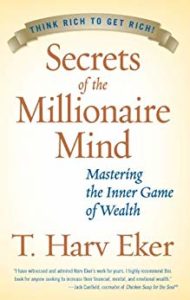
Secrets of the Millionaire Mind: Mastering the Inner Game of Wealth
Living in LA obviously, you do what everybody did. I worked at one of the studios for about a year and it was at Raleigh Studios. We had an independent film production. It’s actually upstairs from us. It was the little company called New Line Cinema then right next to them was Gene Wilder Productions. I liked a lot of the people I worked with but I didn’t particularly like the industry from the standpoint, it’s nothing wrong. I know a lot of people in entertainment and I’m full circle again. I realized I wanted to do something else where I could help more people in my mindset. I wanted to start working with teenagers and children who were transitioning. That became a lot of what I did. I went back to university and got my Master’s in Clinical Psychology.
Clinical Psychology would have fit more into the paradigm that your parents were thinking of more than a cop.
There was a lot of maybe prayer that didn’t last for too long.
You moved out of the academy to become a clinical psychologist. That makes sense in some of the things that I know about you but did you practice as a clinical psychologist?
I did. I worked with children and adults in treatment facilities for about eight years and also with the developmentally disabled. I loved what I did but it’s time to have children and I think my mindset wanted something a little more, I don’t know the word tangible but I was getting burnt out. I was getting burnt out from the point of the things I saw, especially working alongside the Department of Children Services. I thought, “I’ve done my tenure. I’ve given it everything I can and I wanted to be a little bit more hands on.” A little less on the mental side is the best way to put it. About 29, 30, I’ve been hitting it pretty hard, pretty fast.
You’re married right at this point and you’re wanting to have kids.
At that point, I did a restructure. A lot of my friends were doctors actually but I didn’t want to do fourteen more years of school. I did what every good male does. I became a nurse. What it did is it gave me stability. At that time of my life, everything was about stability. It gave me a job wherever I went and then I was going to become a nurse practitioner and open up five clinics. That was the goal.
You had nine years as a clinical psychologist, cop, psychologist, nurse, all service-oriented. These are good moves. These are significant pivots.
It is true though. It was all within that paradigm of being of service. That was riding through my message the whole way. At that point, I moved up to Seattle. My brother was up here already and his wife got a job at a company called Microsoft in the ‘80s. I was flying back and forth between Seattle and Spokane, it’s about a 45-minute flight to go to Gonzaga University to get my nurse practitioner. I was right on track with that when I had the biggest shift in my life. That was something that some people shy away from but it was called network marketing. For me, the biggest thing it opened up number one is, within a very short period of time I was financially free. When I got something I believed in, even though I was still testing the industry is the best way to put it. I guess I talked to enough people and put a strategy behind it. Part of that strategy was getting to know Bob Proctor, who was part of our company.
What was the company?
The company was Nikken, it was magnetic products.
From the time I was a newly married guy in 1987, there was this guy that I knew and he was older than me. He had kids already. He’s maybe ten years older than me and he was selling Amway and I didn’t want to do Amway. Then later he was selling these NSA water filters. I joined and I got a bunch of water filters in my garage and then he was doing something else. He has exhausted whatever living he was making. He, his wife and their five children were living in his mother’s basement. He comes knocking on my door and he says, “Aaron, there’s a thing we have to actually drive out of Oregon over to Washington State, across the river, to hear the presentation.”
I went and it was these magnets, a mattress, a thing around your shoulders, your shoes. I said, “Reid, you fool. What is wrong with you? You’re living in your parent’s basement. You’re bankrupt with your wife and five kids. Get a freaking job. You’re not cut out for this.” Reid Nelson went on to become the largest guy in Nikken in the United States, $600,000 a month or whatever. We’re friends but I remember going, “Why are you dragging all this through this crap and you’re broke?” That one took off. The interesting thing was the person that invited him to Nikken were the packs, this little mousy couple, he was a librarian. They had ten kids. They were broke. They gave us a quart jar of all these beans and stuff. It was a seven-bean soup. That was our wedding gift because we went to church together with the packs. They found Nikken, they found Reid and the rest was history and they all became wealthy. That was the time that I realized one, look for opportunities and two, you’ve got to get some wild beasts underneath you if you’re going to get a network marketing, like a Reid Nelson who will take it a business. You’re thinking they’re going to hang out and make a lot of money. You got to work it. If you work it pretty soon, it’s working much faster than you.
It’s a great point because to teach any business structure, entrepreneurial, it’s what are you willing to do and are you willing to do what others won’t is the way. When I got it, you could say I was working full time. I was getting my nurse practitioner. I have three kids and a wife and there’s a lot going on. I realized if I’m going to open to the universe and it’s going to drop something in. I’m going to do it as a business. I structured one hour a day, that’s all I did. One hour a day, I structured how this was going to be. If people said yes, fantastic and if they said, no, fantastic. It wasn’t about me. Working with Bob Proctor and then Zig Ziglar became part of our company for a little bit. Getting to talk to the two of them changed the way I looked at everything. It was always about service. Zig was always more for the others.
Bob was that business structure, this is a business. The minute I treated it like that, I’ve worked from home for many years and my life has been great. It introduced me to that world of personal development and business entrepreneurs. That’s what I started to run into. A lot of people have trouble working from home. They still don’t treat it as a business. That’s a critical piece. You treat it like a business. I’m not so scheduled, not anymore but in the beginning, I used to be much more scheduled because eventually, we started to get into trainings and teaching in Australia. I’m in Australia half the time from 2004 to 2010. I treated it all as a business. How is this branch of the business going? Under obviously the LLCs and all the beautiful stuff that gets set up.

Career Changes: When somebody has a vision of something that they believe can work, they’re going to continue to doggedly pursue it.
I knew you’d been involved with Nikken. When somebody has a vision of something that they believe can work and they’re going to continue to doggedly pursue it, it’s not for us to fault them or tell them that they’re wrong. He went from being not remotely in my financial strategy to dramatically above me back in those days. He was killing it, hundreds of thousands of dollars a month and I don’t know what’s still going on with Nikken but I don’t hear about it so much. Fortunes were made for sure. That brought you up to 2010. You said you got into personal development and if you’re with Bob Proctor and Zig, how could you not? How did that lead you into Success Resources?
Success Resources is the largest personal development company probably in the world, out of Singapore, publicly traded. If you see events outside of the United States that are Tony Robbins’, if you’ve got Bill Clinton or you’ve got Richard Branson showing up at a big event, odds are Success Resources is involved with producing that event. Back in the day, they had Trump, Clinton, Robert Kiyosaki, Rich Dad Poor Dad. You’re making money, you’re having success in multilevel marketing, direct sales. How did you end up dipping your toe into the pool of getting involved with personal development but more specifically with Success or with Peak Potentials?
Sometimes people say, “You had how many different careers?” Everything I did brought me to where I was. Anything I learned at the police academy, this was working with other people. Everything I learned from being a nurse, clinical psychology, going to school for nurse practitioner, from network marketing, I brought it all together and I suddenly realized I can bring teams together. I also know a lot about coaching, training and Neuro-Linguistic Programming. I’m a practitioner forever and I put it all together and I started to create coaching divisions. That’s what we did over Australia, the UK, and Asia. That caught the eye of other big companies like Success Resources and Harv Eker, Secrets of the Millionaire Mind and his company was Peak Potentials. It caught their eyes and I got phone calls, “Would you come work with us?” I said, “I’ve always been a contractor. I make my own hours.” They said, “Sure, fine, good. Do for us what you did in Australia.” It was part of my path. I realized part of my goal was to affect a million lives out there.
I’ve been on 4,000 training calls or podcasts as we say. Back then it was different, it was only recorded calls. I’ve trained about 10,000 coaches at this point, worked with probably 400,000 students and it’s towards my goal of affecting a million lives myself. Plus, everybody affects all the others so I’ve gone way over a million already, but that’s not the point. It’s what legacy can I leave? Basically, my road continues down the same way. One thing I learned is I started to say yes. Even when I was volunteering, I said yes. Even if there was a project, there was no money around, I still say yes. Because of that, people started to then say, “You helped with all these other things.” The other thing is I’ve always asked for a percentage. Don’t say the word salary to me. We’re going to talk percentages because I’m always willing to look down the road.
What do you think the most important yes was that you ever said? You didn’t know what you were getting yourself into necessarily, but you did it and it turned out to be pivotal or important in this development.
It was for one of the large speakers. He’s a personal development speaker in neuro-linguistic programming. At this point, he wasn’t number one in Australia. He went down to some courses down there and he wanted to build an online membership site and saying yes to building it, even though I knew nothing about them. There was no money I was going to get from it. I had to launch it all on our own. We had to put a lot of our own time in, but that yes led to everything else. That yes opened the doors. For him, he couldn’t believe we were going to do it. We rolled other people to build it with us and all of a sudden, we were selling it all through Australia, Asia, Europe. It took that yes to be willing and there was never how much are we going to make from it. It was how much difference you make as people join it and learn. We enrolled other trainers to do speaking engagements on it. That was a big yes for us. That was one of those. Having to fly down to Australia, emptying times on our own dime.
You said that started everything else. What do you mean by that?
That started the big move through personal development and catching the eye of I think other people within the industry that was willing to do whatever it takes to get it done, to fulfill it and didn’t ask for a dime.
Here’s something I’ve never done before on this show, but I’m going to do it. I’d like you to name drop just for fun. You’ve already dropped Zig Ziglar, Harv Eker, and Bob Proctor. By saying yes, by jumping in and becoming central in this, who else have you been able to get to know, spend a little time with that maybe we’ve heard of? I think probably if people are reading business books, personal development books, probably a lot of them have crossed your path.
Some I can’t name. You know how this goes.
Why can’t you name them?
Sometimes it’s been in the backs and the green rooms or going offstage or pulling people off, going up right after Tony Robbins or talking to Gary Vee who’s huge right now. Being able to spend time doing the intro and the buildup for him to move into private breakout with 500 people in the room. At the same time, one of my most favorite interviews to this day was with Dr. Wayne Dyer. I called Hay House and talked to Louise and talk to them. I said, “I’d love to have him on the show.” We were mostly in Australia. They were like, “He’s writing a new book right now. He’s got the PBS special running.” I was persistent and I said, “It’s not about us. I love to have him on because Australians need to know him more because what he’s done for the world has made a difference.” It worked and we did an interview with Dr. Wayne Dyer. That for me was huge. That was another one of those turning pieces realizing he’s a human being just like the rest of us. He’s got the same challenges like the rest of us. It was one of the best shows I ever did.
I’m what I would call a warm acquaintance with Les Brown and I’m a good friend with Mary Morrissey. Mary, Les and Wayne Dyer were all mentored by the same guy. As a matter of fact, I’m doing a program down in Bend, Oregon with Les Brown. Mary and I are dear friends. My point is I assumed that it wasn’t if, it was when I would get to know Wayne, that I would meet him and so on. I remember distinctly driving from San Diego up to the Nixon Library for a fundraiser for our friend, Bruno Serato, who feeds 6,000 kids a day in Orange County, CNN Hero of the Year and all that. His main fundraiser, I’m on his Board and I was driving from San Diego up there to the Nixon Library where the event would be held. I heard that Wayne Dyer had passed away. It was a weird moment for me because I didn’t know him at all, but because I knew so many people that did know him, I thought, “This is inevitable. I meet this man that I’ve read his books and I’ve watched PBS Special and all that.” Then he was gone. It struck me.
I was actually in the car driving up with Greg Reid. Greg’s first thought was these age groups are passing away. He said out loud and I thought it was an interesting and bold move. He was like, “I’ve got to do something more to step up to start trying to fill some of these vacancies. I want to be part of the next generation.” I was simply thinking, “The time is fleeting, things go by, opportunities pass and life is not eternal, not life on Earth, whatever your belief system is. This human body is only going to last so long.” I thought, “Instead of wanting to sit at the feet of Wayne Dyer, what am I doing so that I could be maybe not the same as Wayne Dyer but be as worthwhile in helping people?” It was a weird moment because it was one of those deals that if I’d meet him, it was when and then the opportunity’s gone forever. I thought, “What does that mean about my life and my longevity and my contribution?” It was a weird moment for me. I’m glad you got to visit with him and have him on your program and let him teach the people of Australia. It’s amazing when you get out of the house, get out of the office, get out of the cubicle, get out of your storefront and get involved in other events, organizations and so on. You actually get to meet some of your heroes.
I think the great thing about that is they are human beings like the rest of us. They have the same struggles, the same challenges. It’s how you affected somebody else’s life. We keep coming back to that. That’s a critical piece in business to ask yourself every day, “How have I affected, if nothing else, one other person now?”
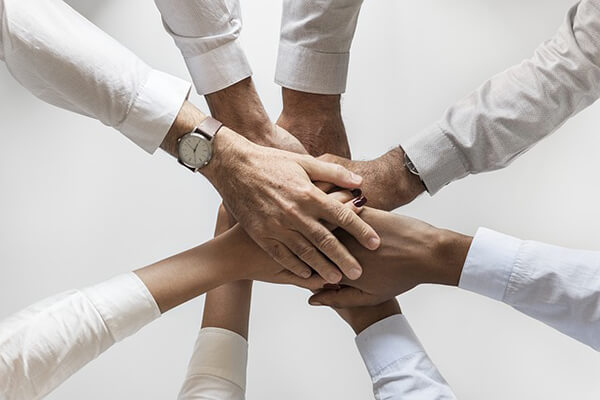
Career Changes: The more we help other people get what they want, the more we’ll get what we want.
As you said Zig Ziglar, the more we help other people get what they want, we’ll get what we want. That’s not his actual quote. If you want to get everything you want, help 1,000 people get what they want or as many people as possible get what they want. It’s a great lesson because it’s very easy in business to be so focused on your payroll, your inventory. You may go to some event and have a booth and it’s like, “How am I going to get my money back out of this booth?” We get so focused on receiving that we may forget to do some service, to be delivering and to be giving somebody what they want. When we get into that zone, it’s a death spiral. All of a sudden, when you start only looking inward, “What am I getting out of this?” You will begin to die versus, “What can I do for somebody else?”
That person will maybe come back and be a customer. Maybe they’ll tell a friend, maybe they’ll give you a testimonial. Maybe they’ll do something else that will be the stepping stone to that perfect customer, that perfect opportunity. I’m going to think of this whole little section of this conversation as the power of saying yes. Bring us up to the current. Tell us what you’re doing now. Full disclosure, I’ve been invited to do something with a new program that Michael is working on that hopefully will make this podcast a lot more interesting. Why don’t you give us what you’re doing now and why you’re doing it? Why you said yes and what your intentions are?
Coming full circle, what I realized is I still want it to do something within entertainment. I’ve been on so many phone calls and so many interviews in my life, big stages and little stages. I realize, “How do we put this all together? How do we reach more people at the same time?” Because part of the frustration is, I don’t want to reach people to have the money. I want to reach the people that need it. Podcasting is a beautiful way to do it because if you’ve got an iPhone or Android, it’s amazing how many people in countries that are not as lucky as we are and not everybody in this country, by the way, has as much as some of us. You have to remember that out there. Everybody has a cellphone. Apple’s created a dynasty if you think of podcasting because you can listen to something without much ban. You can get tremendous information.
What we did is we put together an entertainment group with entertainment attorneys who were part of the YouTube, bringing YouTube channel and the YouTube stars. What we’re going to do is put together a podcast syndicate. We’re going to get groups together who help, work and play together who either have a podcast already. Here’s the trick, they want to be podcasters but 83% after 21 shows don’t do it anymore because you’re not getting feedback. You flip away. For the ones that are destined to do this, it’s part and they want to have a mission, we’re putting together between entertainment podcasters and people in personal development. We’re bringing on some of the big vegan cooking show people from the Cooking Channel. A place where you can go and listen and be part of something that’s cutting edge and it’s exciting.
One of my business partners is the head of product marketing for Instagram TV. He actually was part of marketing for YouTube Channel for five years, has moved over and he’s cutting edge. Everything he does is cutting edge. Everything he touches is cutting edge. We’re going to bring him to an event in LA but it’s opening people’s eyes no matter what business you’re in. Whatever business you’re in, marketing is a good thing. It’s not about teaching marketing. Think of it this way, if you have a podcast channel, you’re going to first say, “Nobody knows me.” If you had a million other downloads promoting your show, do you think that would make a difference? Of course, people will say, “Yes, obviously,” and that’s what we’re creating and we’re creating it very quickly. A group that will play together, work together, which means will you be on it, but it’s thinking of things outside of the box. That’s the biggest thing, whatever business you’re in.
Here’s what I’ve done for my company. This is how it helped other people. I’ve solved their problems. How do I go to a bigger audience? If nothing else, I’m going to help people because they’re going to listen to my show. “You built such a business and you did this. I could do that in my own business. I could be a better employee.” There’s this whole thing about, “It’s negative to be an employee.” No, it’s not. There are people who worked for nonprofits, they don’t make very much. They don’t care but be the best person at that nonprofit and bring the things we teach to your nonprofit and it goes on and on.
I want people to be thinking about this. This podcast will be part of the syndicate. I’ve been doing this for however long and I get downloads, I get people to write to me. I get people that want to come to an event, I get people that may want to take the Unshackled Owner class and so on. There’s this idea of monetizing. The podcast itself is pretty straight forward and transactional. They hear it, they like you and then they say, “How can I learn more from you?” That’s it, that’s what we’re used to. You came and said, “We’re not going to own any of these podcasts but we’re going to use the power of the community to enhance all “the rising tide lifts all boats.” Explain to us briefly, how does syndication work and what’s in it for the syndicator?
The two pieces there is we’re bringing the power of the download. In any business, it’s communication and it’s getting to know more people. Customer acquisition is one of the biggest costs that most company has. What we’re doing is we’re almost eliminating some of those costs. For the syndicate, it’s going to be the power of other people promoting you but also being part of a percentage of what’s going on. Everybody in the syndicate, the difference that we’re doing from what used to happen is that everybody’s going to benefit. Everybody who is podcasting is going to benefit as there’s going to be a percentage of all revenue that’s cut back to the syndicate because that way you create a community.
Most of the television shows that we watch, there are all these weird little funny things that are at the very end of the TV show. The episode ends, there are credits and there’s always this weird little thing. It’s the outro, the acknowledgment of the production company that made the show. If I’m understanding it, it’s like Aaron Young has a production company that makes the Unshackled Owner Podcast. I make a show, but if I want to make any money with that show, I’ve got to take a pilot or an idea to someplace that’s got an audience. In the old days, it was ABC, CBS, NBC. We have hundreds of channels on television where a show theoretically could be picked up and put into that syndication.
The idea of the syndicator is to sell advertising, you get advertising money. The way they get advertising money is by getting lots of eyeballs on that time slot, putting something interesting out for the public to look at. In order to see all of it, you’ve got to hear some commercials or you’ve got to subscribe upfront so that you have the opportunity to watch. If I’m understanding it, it’s almost like you’re building a new television network but this is for podcasters and you’re going to market to bring attention to the network. Based on how good each show is, there are opportunities for advertisers to have their stuff running on the side or maybe even in the show. The podcaster may participate in a small way in the advertising revenue but you’re getting the bulk of the advertising revenue. We’re getting the bulk of the attention. If we’d put on a good show, we can become a star and that means people will buy our books, come to our events. Am I on track?
You’re absolutely on track. That’s absolutely the way it goes. The one thing we’re going to do and we’re looking at is how to make sure that the podcasters benefit greatly. What used to happen is it was the syndicator that made all the money and that was very common. Being that I’m with an attorney group that did a lot of his YouTube and saw that happened over and over and what a disaster in a way that was, we’re not going to do that again. We’re going to do all the work and the leg work but they’re also going to get well taken care of.
My reason for talking about it was more of thinking outside the box. Think outside the box but why do they want to do this thing? I want to lead this to another place and this is going to come around something else that I know you’re doing right away. You said it’s all about marketing. It’s all about getting somebody to pay attention to what you’re doing. If you’re not audacious enough to put your message out in front of an audience, nobody can learn from you, nobody can buy from you. Nobody can benefit and you will starve to death because there’s no monetization of your time and effort. There’s got to be marketing to draw in the exact right buyer for whatever your thing is or the exact right fan. I’m not a big fan of most rap music, that isn’t me. I’m listening to a lot of Frank Sinatra, I’m born in the wrong era.
The point is because I’m not buying it doesn’t mean nobody is. Just because it’s not my preferred entertainment, it doesn’t mean there’s not a whole bunch of other people who want it. What we need to do is shine a light on that thing as well as Sinatra, as well as The Eagles, as well as Meghan Trainor. You do that by getting organized and then marketing a place to find the best content. The thing that I think I keep coming back to you, with all the people you’ve touched, all the training you’ve done, all the events you’ve spoken at, the network marketing stuff. All of this comes back down to figuring out how to get your message out to the audience, to the world that doesn’t know you exist yet. We have an unprecedented opportunity for viral marketing through all the television, radio, podcasts, Instagram, Facebook, LinkedIn, on and on. All of these provide a little television station or a television network you can get into and if you can get attention, you can monetize it.
The big reason why I wanted you, to be honest, is because one of the things that I think is cool that you’ve figured out is it’s not all about the fame and the fortune. As a matter of fact, you look at most of the actors. I was thinking about this, the number one comedy on television and they’re at the top and they’re leaving on the top is The Big Bang Theory. I’ve cracked up, I’ve cried laughing. I’ve thought about how funny and hilarious the show is. I would be hard pressed to name more than one or two of the actors that make up the ensemble. I interviewed Anson William and when Happy Days went off, that was it for Anson Williams. He was an entrepreneur in his career and he went behind the cameras and started directing. He was on Happy Days, these people are on Big Bang Theory. These are the top shows but we don’t know their names.
Who makes the money? Aaron Spelling makes the money and the other people that were the ones that created it and provided a mechanism to promote it. That’s what I think that you’re doing that is amazing to me. You look for ways of capitalizing on what people are doing, what Aaron Young is doing but Aaron’s not getting as many listens as he wants. I’d like lots of people to hear this. I’d like millions of people a month to hear the show mostly because they’ll get some good information. You are thinking about how to actually get the information into the earbuds of the audience out there. You have an event coming up and I don’t remember the dates or anything but you have a viral marketing event coming up sometime soon. What is your intention? What’s the outcome you desire for that? This is the first time you’ve done this event, isn’t that right?

Career Changes: If you’re not audacious enough to put your message out in front of an audience, nobody can learn from you.
We are going to bring in Jon Youshaei from Instagram. You are going to see what’s going on out there. He’s very cutting edge, let alone his own huge following. He also has his own comic strip and his stuff’s all over Zappos and on and on. I always say, “You can’t be 28. There’s no way.” We’re bringing him in and we’re going to bring in some mindset. We’re going to bring in one of the top podcasters out there to look at how do you drive that social media? We’re bringing an entertainment personality from LA. She’s going to do it from the perspective of why did she create a podcast and what does that mean from that perspective? How does that get out to the bigger world?
We’re going to take a look at any business structural model, how does social media and viral marketing work within that path? We also have breaks that are going to basically take a look at people’s businesses. You have a Hallmark store. How does that going to affect you with the rules and regs all the way from you’re an attorney, you’re a doctor, you’re a business owner, you’re an entrepreneur. How does it all fit together no matter what you come from? By the end of the day, you have more of a business funnel, you have an idea of what you could do with it. Honestly, we’re looking for other top podcasters or people who are so committed to bring their message forward and to meet them face-to-face.
How big can the syndicate get before it becomes unwieldy?
That’s been asked several times. The part of the reason that I’m here is number one because of the connections. Number two, I’ve put together very large teams that work together with thousands of people. From that perspective, I could have a thousand podcasters in this. If they get on a call once a month and we do the team call together, we’re a team and we flow. 100 to 150 is what you’re looking at to start with. I know it sounds a lot to some people but that’s nothing. We’re ready almost at half a million downloads a month and we haven’t even begun.
How big we’re going to grow will depend on how well each person plays together and will they play together as a team. We’ll switch out very quickly the ones that won’t because that’s also what I’ve done. About 100 to 150 is what we’re probably looking at in the beginning. If that’s the number we say magic and golden, we’re right where we need to be, we’ll be way past where we need to be. Do we have the right personalities together? Do we have people who want to help another show? Part of that day is also to get to know some people. You are going to meet the guy at Instagram, the guy who does it and that’s rare. He doesn’t do almost any events outside of Instagram.
First of all, if you haven’t figured out what you want to do when you grow up yet, that’s okay. Michael’s had at least four or five iterations of his career that every piece has led to another level of experience in success and wealth. There’re two things, there’s so much power in service and there’s so much power in helping the other person get what they want. If you will you will try to stay away from selfishness and focus on lifting a group, if you’re the one willing to lift the group, you will become elevated in the group. You’ll be seen as a connector, a leader, a visionary. People will naturally want to refer others to you, to meet you, to learn about what you do, to participate with you, to affiliate with you. It’s a powerful thing. Selfishness never was happiness, I’m telling you.
The quickest way to become wealthy is to figure out something that the market actually wants and then align yourself with other people who have lots of their own followers that will endorse you and help you. You’ve got to be willing to do that a reciprocally with them. Michael Silvers and The Vertical Group are a great example of if we focus on service and focus on helping the most amount of people, not only can you become wealthy and you can have great success but you also get to hang out with super cool people. Believe me, if this syndication thing takes off everybody on the planet is going to want to talk to Michael and say, “How do I get, how do I participate?”
If somebody says, “I’m an Inc. columnist for Inc.com,” they can interview anybody. They talk to anybody because everybody who’s out there wants a little more publicity, a little more marketing. A lot of times, the most straightforward transactional business opportunities are the least valuable. Usually, things that are a little more complicated, things that are not obvious right off the bat end up being the things that make the big money. You’ve got to figure out a way to open your mind to lots of interesting possibilities. Instead of saying, “Buy my widget. Sign up for my course.” That’s fine for a while but it doesn’t build a legacy as you’re saying.
It is about that legacy piece. As we get older, I know it’s always funny but it is that legacy piece and I love it. It’s the, “How much money do you have in the bank or how many people show up for your funeral?” It’s not the ego part about who shows up to your funeral, it is how many people have been helped by you directly or by something you’ve created around you that’s helped them. I think that’s the real piece.
Remind us about the March event.
It’s the Viral Marketing Bootcamp. It is March 23rd at the LAX Convention Center. We’re actually keeping it a small event. I have booked a small room to keep it intimate with the group we’re working with. It’s part of the way I do things and the way I believed and it’s on Eventbrite. Book the day with us, come, there’s something to learn for everyone. We’re going to have high-level business people to the top in social media and podcasting.
Viral Marketing or Marketing Bootcamp?
Viral Marketing Bootcamp.
You can look it up on Eventbrite. You’re a guy who meets a lot of people, you coach a lot of people, you’ve come up lots of cool ideas. The primary audience to this show is either already a successful business owner or they’re working toward that. I’d love to have any parting wisdom you could share with us.
Over the years, I’ve worked for people to start new businesses to coaching three billionaires. The biggest thing was number one, say yes if there’s no harm to what’s called yourself or others. That’s the key point. If there’s no harm to yourself and others, say yes because it’s of service. Number two, for some people I know this is hard, have three coaches, two mentors, and a mastermind. One coach keeps you moving. One coach knows your business. One coach is about your health, the mentors are people that you want to strive to be like or you want your business to grow bigger from $1 million to $10 million, $10 million to $100 million, $100 million to $1 billion. Starting out a mastermind, a group of individuals from different companies, different organizations that are there to work together, to build something out of nothing and you’re off and running.
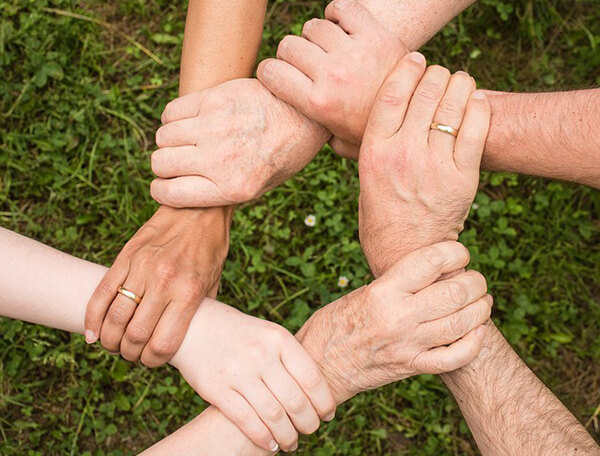
Career Changes: There’s so much power in service and there’s so much power in helping the other person get what they want.
This isn’t an advertisement at all. Michael, you’ve encouraged me to start a high-level intimate mastermind group. I wanted to do something small where people would commit to staying together. People that are moving, shaking and doing interesting things of the world. It was fun. I knew I could do it, I knew I could put it together but I was very nervous to invite people. I didn’t want to do a big blanket thing and invite the world. I wanted to curate people that would make a fabulous experience. I put it off and mostly out of fear. If you guys have ever been afraid to do something new, I want to let you know that I’m in the same boat with you. We set a price, depending on your perspective, it’s a relatively high price, not crazy high, not $100,000 but an expensive decision, an investment to make in oneself. I thought, “If this is ever going to happen, I’ve got to start.”
I picked up the phone, I called somebody I thought would be a great fit and within five minutes they were like, “I’m totally in. Here’s my credit card.” I called another person and they were like, “Here’s the credit card.” I called the third person and he said, “Let me wire you the money.” In about 45 minutes, this thing that had been scaring me and holding me back had delivered shy of six figures into my account. I only say that to say that there are opportunities that are huge out there and you can have many of your wildest dreams.
If you allow fear to be the roadblock that keeps you, you allow a lack of understanding of the marketplace to keep out or you think, “I’m not prepared. What are they going to think of me?” You will spend a lot of time preparing and never getting the results you want. One of the things I love about our guest, Michael Silvers is he’s a guy who sees an opportunity and jumps, dives head first into the deep end and says, “Let’s make something good, big, useful happen.” If you ever do feel insecure, nervous or like, “Who am I to do this?” All of us feel that way.
All of us feel that way, the difference between success and I don’t want to say failure, let’s say staying flat and blowing up into something great, is having the courage to do it even though you’re scared. When Michael called and said, “Will you be in our syndication?” I was like, “I’m all over that.” Thank you for allowing me to say yes to your new idea. I’m super excited about it. Michael, thanks so much for being on the show. Thanks for everything you and I’ve done in the background and people we’ve been around or mutual friends. It’s always great to talk to somebody I admire. Everybody else out there, the difference between sitting here, reading and becoming unshackled is taking baby steps every day intentionally toward a very specific goal. Whatever you get clear on is what you’re going to achieve. As long as you don’t do that, you’re going to flounder around. Let’s go out and make it a good one. I look forward to seeing you again on the Unshackled Owner Podcast.
Important Links:
- The Vertical Group
- Success Resources
- Rich Dad Poor Dad
- Secrets of the Millionaire Mind
- Jon Youshaei
- Inc.com
- Viral Marketing Bootcamp
About Michael Silvers
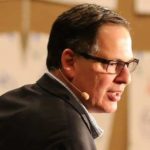 Michael’s career and experience span a variety of professional roles over the last 20 years that have been oriented towards the development of personal and professional achievement. He earned a Masters degree in Clinical Psychology in 1990 and enjoyed working with at-risk youth and adults, holds 10 years experience as a direct care practitioner and case manager in the health care arena and is a Master Trainer and Practitioner of NLP and Advanced Neurological Repatterning™.
Michael’s career and experience span a variety of professional roles over the last 20 years that have been oriented towards the development of personal and professional achievement. He earned a Masters degree in Clinical Psychology in 1990 and enjoyed working with at-risk youth and adults, holds 10 years experience as a direct care practitioner and case manager in the health care arena and is a Master Trainer and Practitioner of NLP and Advanced Neurological Repatterning™.
Michael’s clear and consistent strategic and tactical direction are key to supporting the rapid growth of coaching programs, as well as his management and training of Master Coaches, and the continuing development of coaching models and techniques. As Director and Master Coach, Michael excelled in leading and developing teams and individuals to achieve peak performance and had helped thousands of individuals create the wealth and engineer the lifestyle they truly desire.
- AaronScottYoung.com
- The Unshackled Owner Twitter
- The Unshackled Owner Facebook
- Aaron Scott Young LinkedIn

